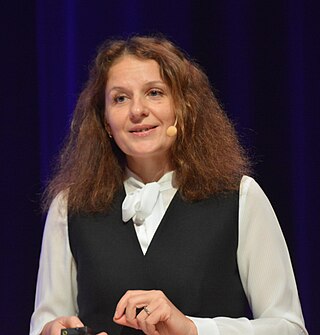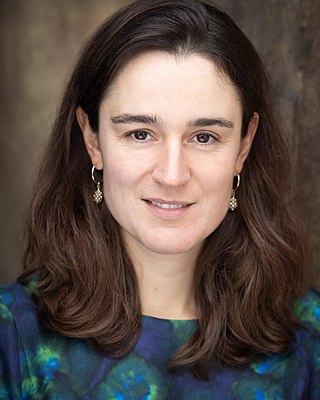
Differential psychology studies the ways in which individuals differ in their behavior and the processes that underlie it. This is a discipline that develops classifications (taxonomies) of psychological individual differences. This is distinguished from other aspects of psychology in that although psychology is ostensibly a study of individuals, modern psychologists often study groups, or attempt to discover general psychological processes that apply to all individuals. This particular area of psychology was first named and still retains the name of "differential psychology" by William Stern in his book (1900).

Industrial and organizational psychology is the science of human behavior in the workplace and work-life interface. It is an applied discipline within psychology. Depending on the country or region of the world, I-O psychology is also known as occupational psychology in the United Kingdom, organisational psychology in Australia and New Zealand, and work and organizational (WO) psychology throughout Europe and Brazil. Industrial, work, and organizational (IWO) psychology is the broader, more global term for the science and profession.

Prejudice can be an affective feeling towards a person based on their perceived group membership. The word is often used to refer to a preconceived evaluation or classification of another person based on that person's perceived personal characteristics, such as political affiliation, sex, gender, gender identity, beliefs, values, social class, age, disability, religion, sexuality, race, ethnicity, language, nationality, culture, complexion, beauty, height, body weight, occupation, wealth, education, criminality, sport-team affiliation, music tastes or other perceived characteristics.
Sociolinguistics is the descriptive study of the effect of any or all aspects of society, including cultural norms, expectations, and context, on language and the ways it is used. It can overlap with the sociology of language, which focuses on the effect of language on society. Sociolinguistics overlaps considerably with pragmatics and is closely related to linguistic anthropology.
Robert Glaser was an American educational psychologist, who has made significant contributions to theories of learning and instruction. The key areas of his research focused on the nature of aptitudes and individual differences, the interaction of knowledge and skill in expertise, the roles of testing and technology in education, and training adapted to individual differences. Glaser has also been noted for having developed the idea of individually prescribed instruction as well as making major contributions to the theory of adaptive education.

Mathematical psychology is an approach to psychological research that is based on mathematical modeling of perceptual, thought, cognitive and motor processes, and on the establishment of law-like rules that relate quantifiable stimulus characteristics with quantifiable behavior. The mathematical approach is used with the goal of deriving hypotheses that are more exact and thus yield stricter empirical validations. There are five major research areas in mathematical psychology: learning and memory, perception and psychophysics, choice and decision-making, language and thinking, and measurement and scaling.

Ian John Deary OBE, FBA, FRSE, FMedSci is a Scottish psychiatrist known for work in the fields of intelligence, cognitive ageing, cognitive epidemiology, and personality.

Horace Romano "Rom" Harré, was a New Zealand-British philosopher and psychologist.
William Roger Revelle is a psychology professor at Northwestern University working in personality psychology. Revelle studies the biological basis of personality and motivation, psychometric theory, the structure of daily mood, and models of attention and memory.

Sir Cary Lynn Cooper, is an American-born British psychologist and 50th Anniversary Professor of Organizational Psychology and Health at the Manchester Business School, University of Manchester.
The Journal of Transpersonal Psychology (JTP) is a semi-annual, peer-reviewed academic journal which is published by the Association for Transpersonal Psychology (ATP). The journal is a seminal publication in the field of transpersonal psychology. According to sources the journal is addressing the interface between psychology and spirituality, and the area of spirituality as a legitimate topic for academic studies.
The International Association of Applied Psychology (IAAP) was created in 1919 by Édouard Claparède under the name of International Association of Psychotechnics and the secretary general was Jean-Maurice Lahy. The present name was adopted in 1955. The current president is Lori Foster, PhD.

Tomas Chamorro-Premuzic is an organizational psychologist who works mostly in the areas of personality profiling, people analytics, talent identification, the interface between human and artificial intelligence, and leadership development. He is currently a professor of business psychology at University College London (UCL) and an adjunct professor at Columbia University, as well as the Chief Talent Scientist at ManpowerGroup, and was previously the CEO at Hogan Assessment Systems.
Professor Peter K Smith is a developmental psychologist with a particular interest in children’s social development.
Peace psychology is a subfield of psychology and peace research that deals with the psychological aspects of peace, conflict, violence, and war. Peace psychology can be characterized by four interconnected pillars: (1) research, (2) education, (3) practice, and (4) advocacy. The first pillar, research, is documented most extensively in this article.
Frank H. Farley is a humanistic psychologist and a past president of the American Psychological Association (APA) and the American Educational Research Association (AERA). He teaches at Temple University and has been a fellow or a leader of several scholarly societies. He has published research on a wide range of topics, from risk-taking personalities to men who visit massage parlors.

G is for Genes: The Impact of Genetics on Education and Achievement is a 2013 book by Robert Plomin, Professor of Behavioral Genetics at the King's College London and Kathryn Ashbury, lecturer in the Centre for Psychology and Education at the University of York. The book summarizes findings of behavioural genetics that are relevant to education and offers policy recommendations. It is written for a wide audience including parents, educators and policy makers.
Helinä Häkkänen is a Finnish psychologist who has studied narcissism and psychopathy and wrote the first Finnish textbook on the subject, Psykopatia. Working as both a criminal psychologist and an associate professor, at the University of Helsinki, Häkkänen-Nyholm studies criminal behavior and the risk factors associated with it. She is considered one of Finland's chief experts in forensic psychiatry and legal psychology and has a prolific publishing record. She started her career in legal and criminal psychology at the National Bureau of Investigation (NBI) after which she ran a legal company. Since 2021, she has worked at Mindroot Ltd, her own company, which is specialized in providing psychological services for the legal industry and EMDR-therapy. She still co-operates with the NBI, local police and several other legal operators. Her current work as an author focuses on psychology of greed and how greed can ruin family businesses.

Yulia Kovas is a geneticist and psychologist - currently a professor of genetics and psychology at Goldsmiths, University of London, and a visiting professor at UCL, King's College, Sussex and New York universities - in the United Kingdom. Kovas received the British Academy Wiley Prize in Psychology in 2012. Kovas is the director of the International Laboratory for Interdisciplinary Investigations into Individual Differences in Learning at Goldsmiths, and leads the genetically-informative research into individual differences in mathematical ability and achievement as part of the Twins Early Development Study at King's College, London.

Sophie von Stumm is a professor of psychology in education who studies the causes and consequences of individual differences in psychological and behavioural development across the life course.








